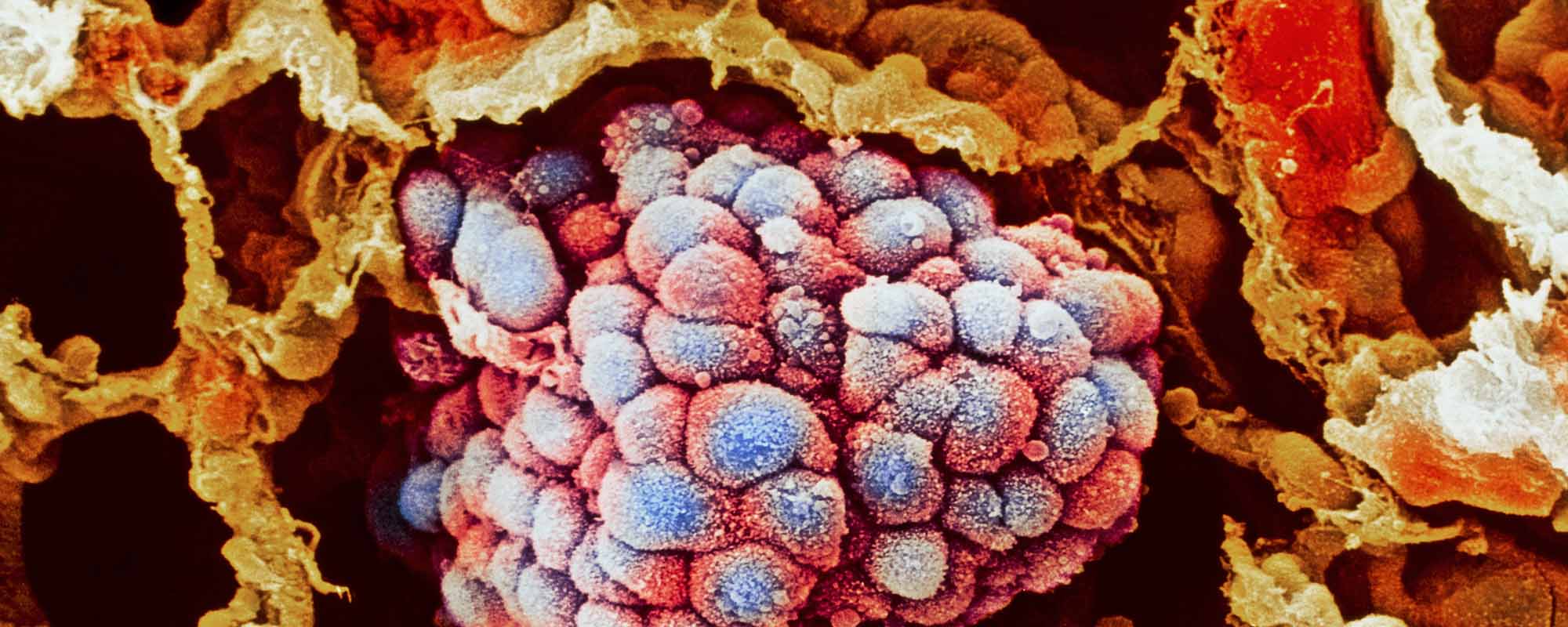Between 2016 and 2017, the United States experienced the largest ever single-year drop in overall cancer mortality rate. Moreover, since peaking in 1991, the death rate associated with cancer declined by 29%, which translates to 2.9 million fewer cancer deaths.
Although cancer remains the second leading cause of death in the United States, we have made tremendous progress in tackling this disease. Along with public health campaigns to reduce harmful behaviors like smoking, as well as improved approaches to screening, new medicines allow us to treat and in some cases cure cancer in an increasingly targeted way. As our understanding of disease biology continues to grow, the prognosis has never been more promising for patients with cancer. Leading the charge, here are four groundbreaking innovations helping address the cancer mortality rate and revolutionize our battle with this disease.
Immunotherapy
Ordinarily, if a cell experiences a genetic mutation that could lead to uncontrolled growth, it is quickly destroyed by our immune system. However, sometimes a group of cancerous cells trick the body to avoid detection, allowing them to grow unrestricted and ultimately become a tumor. Other times, cancer can weaken a person’s immune system to a point where the body cannot effectively fight the disease on its own.
Immunotherapies counteract these changes by reversing a tumor’s ability to avoid detection or strengthening the existing immune system response, which helps the body’s natural defenses to find and fight the disease. Since their discovery, immunotherapies have contributed to dramatic gains in survival among various lung, skin and prostate cancers, among others. Immune checkpoint inhibitors are an example of one type of immunotherapy.
Cell & Gene Therapies
One of the most exciting developments in the last few years, cell and gene therapies work by modifying genetic material to help fight disease. Specifically, gene therapy uses genetic material, to manipulate a patient’s genes (for example, to fix a gene mutation that is causing disease), while cell therapy involves the infusion or transplantation of whole cells into a patient. A 2020 report found there are 173 investigational cell and gene therapies currently in clinical development for the treatment of cancer.
One example of how cell and gene therapies are assisting in the fight against cancer is CAR-T, which provides a method of collecting a sample of white blood cells, genetically altering them to seek out and attack certain cancer cells, and injecting them back in the body to act as “smart bombs” that selectively target a patient’s cancer. In 2017, the U.S. Food and Drug Administration (FDA) approved the first two CAR-T therapies for certain types of blood cancers.

